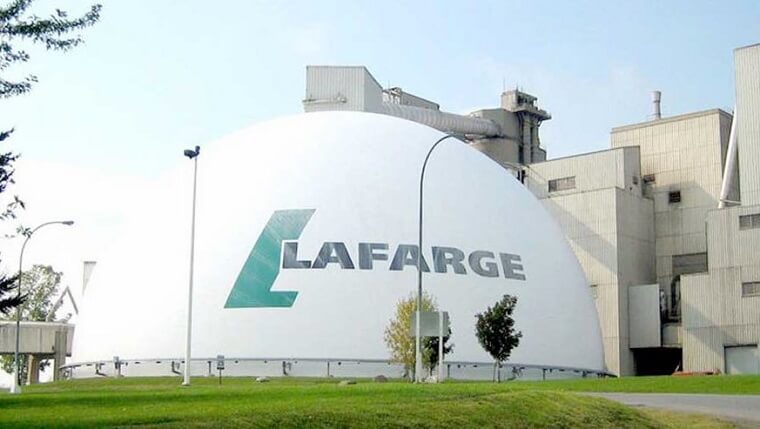Swiss cement giant Holcim’s decision to exit the Nigerian market after 65 years has drawn sharp reactions from shareholders, who cited persistent economic challenges as key drivers of the move.
Holcim announced its decision to exit the Nigerian market after 65 years of operation, agreeing to sell its 83.8 per cent stake in Lafarge Africa Plc to China’s Huaxin Cement for $1bn.
In a notice to the Nigerian Stock Exchange (NGX), Holcim disclosed that the transaction aligns with its global strategy to streamline operations and focus on high-growth markets.
The deal, expected to close in 2025, is subject to regulatory approvals in Nigeria. This divestment is part of Holcim’s broader restructuring efforts, which include a planned spin-off of its North American business for a potential U.S. listing in the first half of 2025.
Lafarge Africa Plc, formerly known as the West African Portland Cement Company (WAPCO), has been a key player in Nigeria’s cement industry since its establishment in 1959.
The New Dimension Shareholders Association of Nigeria in an exclusive chat with our source, expressed understanding of Holcim’s right to reassess its investment strategies but emphasized the need to protect minority shareholder rights in any subsequent arrangements with new investors.
President of the association, Patrick Ajudua highlighted the toll of Nigeria’s economic climate on businesses, particularly in the manufacturing sector.

“We, as shareholders, are not unaware of the challenges companies face in Nigeria. These issues have led to diminished profitability, negative retained earnings, and the erosion of shareholder value,” he said.
Ajudua pointed to critical obstacles, including the devaluation of the naira, high inflation and borrowing costs, volatile and unfavorable foreign exchange rates, difficulties in accessing forex for importing raw materials, and widespread insecurity.
He urged the Nigerian government to address these systemic problems urgently, warning that failure to act could exacerbate investor flight.
“The solutions to these challenges lie squarely within the government’s powers. Efforts must be made to tackle them holistically,” Ajudua added.
Holcim’s exit, he noted, reflects a broader trend of international investors reconsidering their presence in Nigeria due to unfavorable business conditions. “Failure to give these issues the needed attention is causing global investors to delist and exit the country,” he cautioned.
The association also called on regulators to proactively engage with businesses to prevent similar departures. “Regulators must not sit idle. A lack of engagement with companies might prompt others to take equally unpopular and damaging decisions,” Ajudua warned.
Holcim’s departure has intensified concerns about the Nigerian business environment’s ability to attract and retain foreign investment. The shareholders called on all stakeholders to take urgent and decisive steps to stabilize the market and restore investor confidence.
The company began as a joint venture involving the Western regional government, Blue Circle, and United Africa Company of Nigeria. Over the years, Lafarge Africa has maintained its prominence in the construction and infrastructure sectors.
In its recently released financials for the third quarter of 2024, Lafarge Africa reported significant growth. Pre-tax profit surged by 717 per cent to N47.69bn, compared to N5.84bn in third quarter of 2023.
Revenue for the quarter doubled, reaching N183.92bn, a 101 per cent increase from N91.40bn in the same period last year. Earnings Per Share rose to N190.75 in the third quarter of 2024 from N23.75 in the third quarter of 2023, representing a 703 per cent increase.
Operating profit for the quarter climbed by 200 per cent to N51.17bn, while profit after tax grew to N30.73bn, a 703 per cent increase compared to N3.83bn in Q3 2023.
Nigeria’s cement industry has witnessed significant expansion in recent years, with local manufacturers like Dangote Cement and BUA Cement emerging as market leaders.
Despite macroeconomic challenges, the infrastructure and construction sectors are expected to maintain steady growth, driven by increasing urbanization and infrastructure development projects.
Lafarge Africa’s CEO, Lolu Alade-Akinyemi, emphasized the company’s strong performance and commitment to innovation and sustainability.
“We achieved robust top-line growth of 101 per cent in Q3 2024, driven by operational efficiency and cost management initiatives amidst heightened cost pressures. Our strategic initiatives have yielded positive results despite macroeconomic challenges,” he said.
Alade-Akinyemi also reaffirmed the company’s commitment to delivering value to stakeholders and pursuing green growth in alignment with its sustainability goals. Lafarge Africa maintains a positive outlook for the final quarter of 2024, with expectations of market recovery and continued growth.
Holcim’s exit marks the end of an era for one of Nigeria’s long-standing building materials manufacturers. However, with the acquisition by Huaxin Cement, the company’s legacy in the Nigerian market is poised for a new chapter of innovation and expansion under its new leadership.
Source-thewhistler



